Democrats are targeting key House seats across the country in an attempt to regain control of the chamber. A number of those competitive races are in New York state – including every single Republican-held seat in the state. In many cases, the races are seen as a referendum on President Donald Trump: Is he popular enough with his base that they will turn out again in the midterms, or will there be enough dissatisfaction with him to spur a changing of the guard?
Pundits have been pondering the potential of “blue wave” election for months. In New York, Democrats turned out in record numbers to vote in the Democratic gubernatorial primary, in some places double or triple the turnout in 2014. Republicans often do well in lower turnout off-year elections, so a surge of blue votes could flip seats long held by Republicans. Democratic candidates have also enjoyed an influx of campaign cash in a number of races in recent weeks.
Here’s a rundown of competitive House races in New York state, including key votes and fundraising totals as well as how competitive the races look according to three leading election analysts – Larry Sabato of the University of Virginia Center for Politics, Inside Elections with Nathan Gonzales/Roll Call and The Cook Political Report.
You can give us your predictions for these races at our New York congressional poll.
District 19
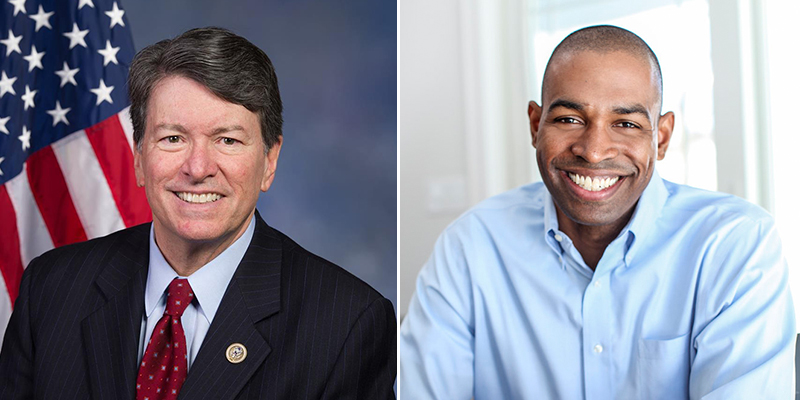
John Faso (incumbent) vs. Antonio Delgado
TOSS-UP
Sabato: Toss-up
Roll Call: Tilt D
Cook: Toss-up
The race for New York’s 19th Congressional District has been a contentious one. Polling in the race has shown the contest to be a dead heat. The most recent poll, from Siena College on Oct. 22, has Faso leading Delgado 44 percent to 43 percent, a statistically insignificant advantage. Seven percent of voters in the district were still undecided. Faso has taken aim at Delgado over his past as a rapper, calling his lyrics “offensive.” The conservative Congressional Leadership Fund has released multiple ads that include snippets of Delgado’s raps and question his American values. At least one Faso supporter said that the parts of rural America Delgado wants to represent don’t identify with that “part of American culture,” although Faso’s focus on the issue has resulted in accusations of race-baiting.
The contest has been identified by the Democratic Congressional Campaign Committee as one of its top-tier races, and Delgado has been added to the DCCC’s Red to Blue list, which offers national support and money to Democrats across the country to flip key seats.
In the first half of October, Faso raised $329,000 to end with $646,000 on hand for the final stretch. Delgado far outraised him with $1.3 million during the same time frame, ending with $767,000 in his war chest to spend before Election Day.
District 22
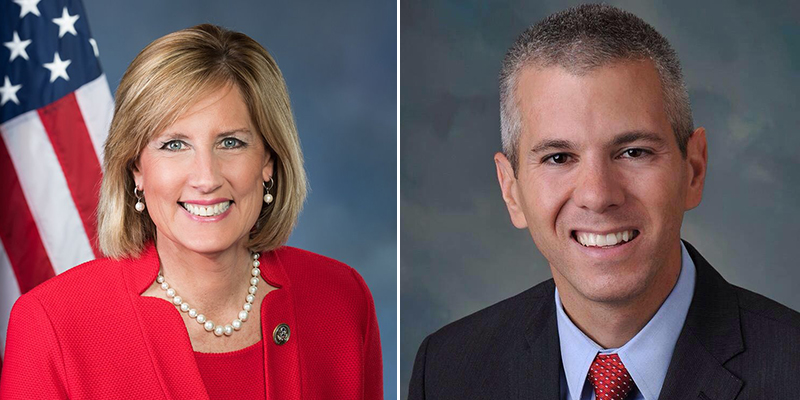
Claudia Tenney (incumbent) vs. Anthony Brindisi
TOSS-UP
Sabato: Toss-up
Roll Call: Tilt D
Cook: Toss-up
In another hotly contested race, Republican Rep. Claudia Tenney is fending off a strong challenge from Democratic Assemblyman Anthony Brindisi. The pair are neck and neck, with Brindisi leading 46 percent to 45 percent in an Oct. 24 poll from Siena College. Tenney benefits from a large voter registration advantage by Republicans in the district, and President Donald Trump won the district in 2016 with 55 percent. Tenney has aligned herself strongly with the president, voting in accordance with his position nearly 97 percent of the time, including on last year’s sweeping federal tax cuts. Trump visited the district to headline one of her campaign fundraisers in August, but his presence appears not to have swayed many voters, judging by the latest poll. FiveThirtyEight, based on its own statistical analysis of the race, actually ranks the district “lean D,” with Brindisi forecasted with a slim victory.
Unlike the broader progressive movement among Democrats, Brindisi is a more moderate Democrat, fitting for the Republican district. He has a 100 percent rating from the National Rifle Association and has said that he would not support Rep. Nancy Pelosi for House speaker. Despite this, the DCCC is supporting Brindisi as one of its Red to Blue candidates.
Tenney raised $187,000 in the first half of October and has $507,000 on hand before Election Day. Brindisi brought in $467,000 in during the same period, ending with $294,000 to spend in the final days of the campaign.
District 27
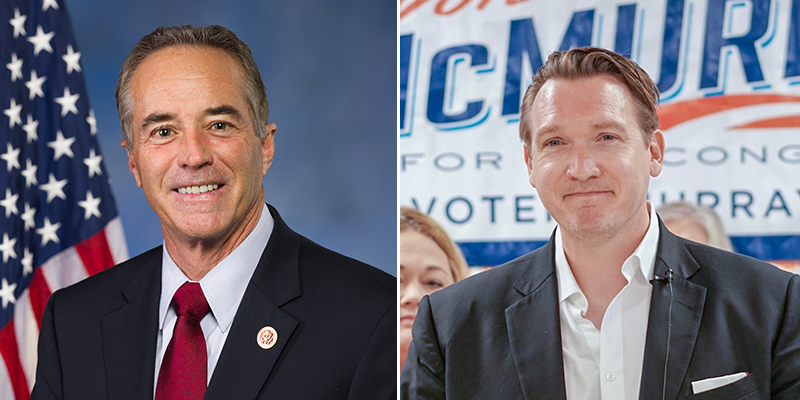
Chris Collins (incumbent) vs. Nate McMurray
LEANS REPUBLICAN
Sabato: Leans R
Roll Call: Leans R
Cook: Leans R
What may turn out to be one of this year’s most interesting races had originally drawn the most attention for the possibility of a comeback bid by Lt. Gov. Kathy Hochul. But Hochul never jumped in. Rep. Chris Collins, who represents the most Republican district in the state, was the first member of Congress to endorse Trump and has since aligned himself with the president 99 percent of the time.
He was expected to easily win re-election, but that all changed when Collins was indicted on federal insider trading charges. Collins initially suspended his campaign and Republican leaders in his district began discussing how to get him off the ballot. Democratic challenger Nate McMurray’s chances, while still slim, appeared to get slightly better.
Then Collins made the surprising decision to not only remain on the ballot, but to actively campaign with plans to continue serving if re-elected, despite the indictment. If he gets convicted while in office, he would be forced to resign. This revelation further shook up the race and put the odds even more in McMurray’s favor. In fact, a newly released NY1/Siena College poll has the pair in essentially a dead heat, with Collins leading slightly at 46 to 43 percent. However, former Rep. Michael Grimm won re-election under similar circumstances in 2014.
Collins’ fundraising has taken a hit since his indictment, with only $32,000 raised in the third quarter and just $1,800 in the first half of October. However, he still has $684,000 on hand to spend before the election. McMurray, meanwhile, still trails in total cash with about $409,000 in his coffers. But he continues to far out-raise his opponent since the indictment, bringin in $246,000 in the first two weeks of October.
District 11
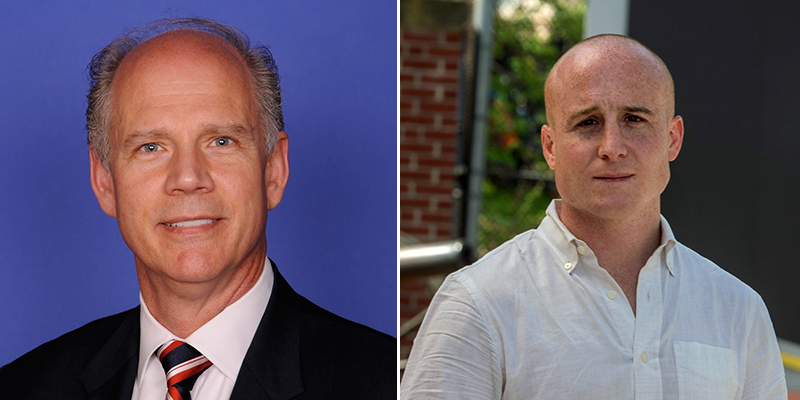
Dan Donovan (incumbent) vs. Max Rose
LIKELY REPUBLICAN
Sabato: Leans R
Roll Call: Leans R
Cook: Leans R
After a hard-fought Republican primary against his predecessor Michael Grimm, Rep. Dan Donovan has earned his spot on the November ballot. Although he is still the favorite, his re-election is not guaranteed. Challenging him is Democrat Max Rose, an Army veteran who has been generating a lot of press and aims to flip New York City’s lone Republican House district. Compared to the Faso-Delgado and Tenney-Brindisi races, this one has so far been less contentious. In Rose’s first television ad, he attacked New York City Mayor Bill de Blasio more than his own rival, asserting the mayor has ignored the needs of Staten Island, the entirety of which is in the district.
At one point, CNN forecasted that the race was too close to call, suggesting the race is closer than other forecasters expected it to be. However, that forecast has since changed, predicting Donovan to be the winner, albeit by only a 3-point margin.
Rose has a slew of endorsements from national figures, including former Vice President Joe Biden, and he’s also part of the DCCC’s Red to Blue list.
In the first half of October, Rose raised $562,000 and still has just over $1 million to spend in the homestretch before Election Day. Donovan raised $153,000 during the same period and has only $256,000 on hand going into November.
District 24
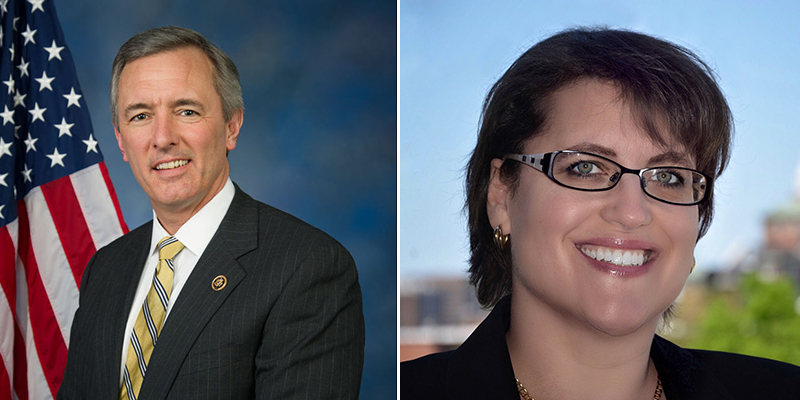
John Katko (incumbent) vs. Dana Balter
LIKELY REPUBLICAN
Sabato: Leans R
Roll Call: Leans R
Cook: Leans R
Polling shows Republican Rep. John Katko with a comfortable lead over Democrat Dana Balter. An Oct. 28 Spectrum News/Syracuse.com/Siena College poll has him up 53 percent to 39 percent.
The district has a slight Democratic voter registration advantage, and it went for Hillary Clinton by a thin margin in 2016, which may be a boon for Balter as the underdog. Although the DCCC originally supported Balter’s primary opponent, Juanita Perez Williams, it threw its backing behind Balter when she won, adding her to its Red to Blue list.
Balter raised nearly $1.5 million in the third quarter, a record-breaking amount. Continuing into the first half of October, she brought in $367,000 to end the period with $621,000 cash on hand. Katko raised $122,000 during the same time frame and has $523,000 to spend before the election.
District 1
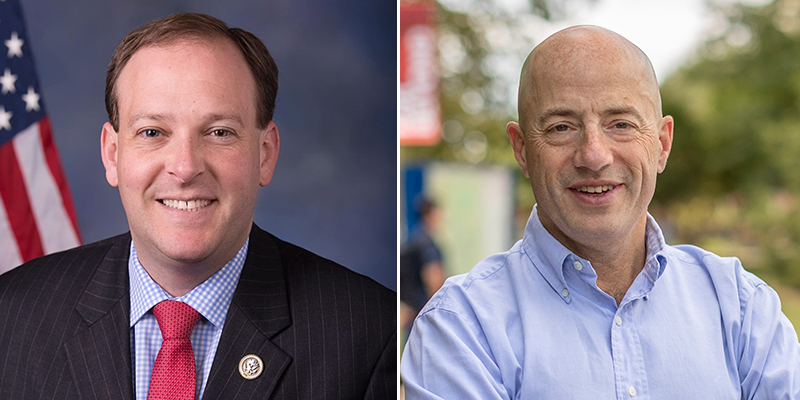
Lee Zeldin (incumbent) vs. Perry Gershon
LIKELY REPUBLICAN
Sabato: Leans R
Roll Call: Solid R
Cook: Likely R
Long Island’s Suffolk County is still solidly Trump country, and Rep. Lee Zeldin, one of the president’s earliest and most ardent establishment backers, is touting that support as one of the key pillars of his campaign. Zeldin has voted in line with Trump nearly 87 percent of the time, with the notable exception of the federal tax cuts, which will negatively affect many of his constituents thanks to the new cap on state and local tax deductions. Despite Trump’s popularity, the race against Democrat Perry Gershon may be highly competitive. Although there has not yet been any nonpartisan public polling, one poll paid for by the Democratic super PAC Taking Action for Suffolk County found that Zeldin leads Gershon by a mere 3 percentage points, well within the margin of error. The DCCC also recently upgraded the race from its second tier of targeted races to its top tier, making Gershon the fifth New Yorker added to its Red to Blue list.
In the first half of October, Gershon raised over $800,000 to end the period with $475,000 on hand for the final stretch. He outraised Zeldin, who raised only $153,000 during the same time frame. However, the incumbent has far more in his war chest with $1.4 million to spend before the election.
District 23
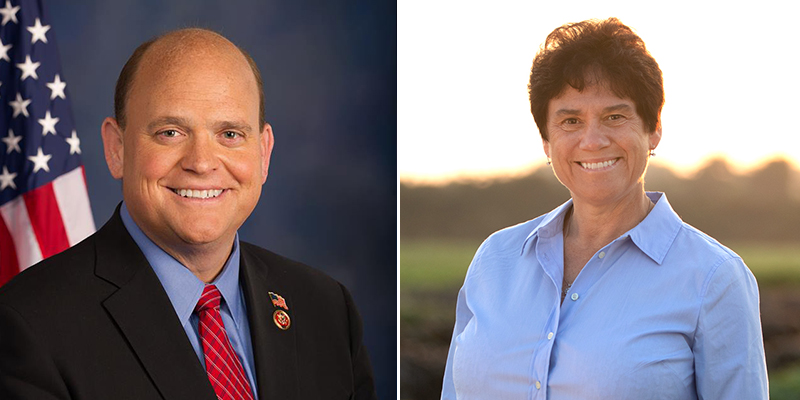
Tom Reed (incumbent) vs. Tracy Mitrano
LIKELY REPUBLICAN
Sabato: Likely R
Roll Call: Solid R
Cook: Likely R
Rep. Tom Reed is in a good position going into the November election – his district went strongly for Trump in 2016 and he has reached across the aisle to work with Democrats as the chairman of the bipartisan Problem Solvers Caucus.Reed has raised plenty of money, with over $2.5 million already spent and about $929,000 still on hand. He far outpaces Democrat Tracy Mitrano, who nonetheless saw some impressive fundraising in the third quarter after finishing the second quarter in debt, bringing in over $855,000. In the first two weeks of October, Mitrano continued her strong fundraising by bringing in $244,000 and ending with $406,000 to spend before Election Day. Reed raised only $86,000 during the same time frame, although he has double Mitrano’s cash total on hand. Like other Democrats running in traditionally Republican districts, Mitrano presents herself more as a moderate.
District 21
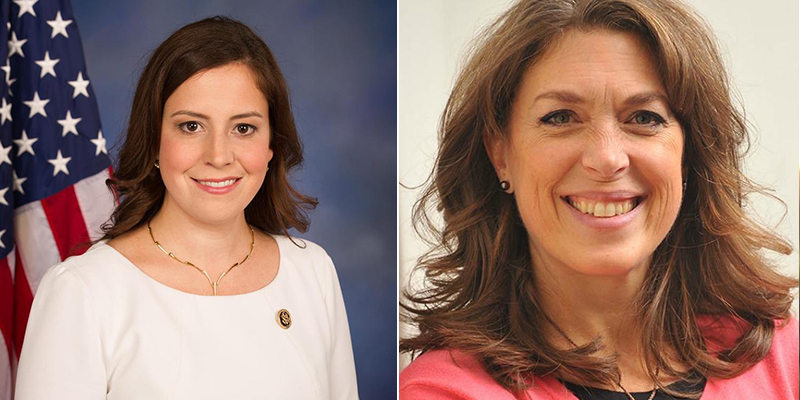
Elise Stefanik (incumbent) vs. Tedra Cobb
LIKELY REPUBLICAN
Sabato: Likely R
Roll Call: Solid R
Cook: Likely R
Earlier in October, Cook moved the district from “Safe Republican” to “Likely Republican,” noting Tedra Cobb’s impressive third-quarter fundraising and the fact that Stefanik appears to be taking the challenge seriously. FiveThirtyEight also ranks the seat as “likely R,” giving Cobb a slim chance of victory. Yet Cobb still faces long odds in the heavily Republican district. Rep. Elise Stefanik, the freshman incumbent, has $1.3 million on hand as of Oct. 17, after raising $116,000 in the first two weeks of the month. Cobb raised $145,000 during the same period, to end with $232,000 to spend before the election.
District 2
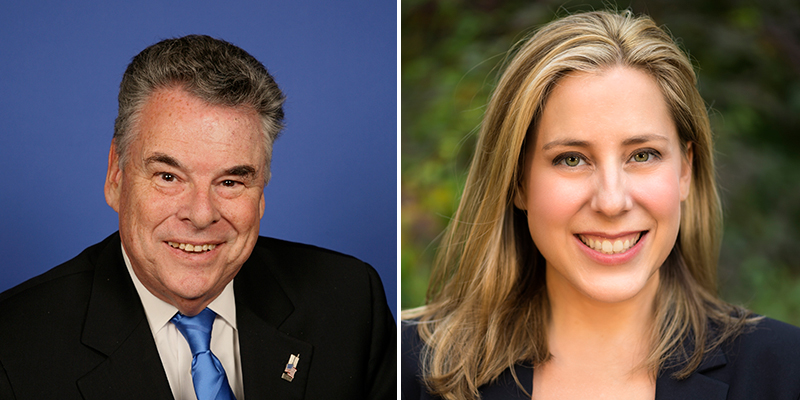
Pete King (incumbent) vs. Liuba Grechen Shirley
LIKELY REPUBLICAN
Sabato: Likely R
Roll Call: Solid R
Cook: Likely R
Until recently, Rep. Pete King’s district had been considered safely Republican by national forecasters. The 13-term incumbent has easily dispatched any challengers he has faced during that time and has successfully cultivated an independent image by publicly criticizing members of his own party and occasionally diverging from the party line. He criticized fellow House Republicans when they failed to act on a support bill for New York in the aftermath of Superstorm Sandy and voted against last year’s federal tax cuts, which are expected to negatively affect the state. But the Democrats’ strength appears to be growing in the age of Trump, and King is facing one of his first strong challenges in years from Liuba Grechen Shirley. Grechen Shirley made national headlines before she won her primary when she successfully advocated to use campaign funds for child care to help stay-at-home parents run for office. She has been attacking King for voting to repeal the Affordable Care Act and running an outsider campaign, one that has been compared to the successful campaign of Alexandria Ocasio-Cortez.
King still dominates Grechen Shirley in terms of finances, sitting on more than $2.3 million in the final weeks, compared to the $212,000 she has on hand. However, Grechen Shirley has outraised King for three straight quarters, leading FiveThirtyEight to shift its assessment of the race slightly more blue to rank it as “lean R,” though still fairly heavily in King’s favor. That trend continued in the first two weeks of October, when Grechen Shirley raised $224,000, compared to King’s $36,000.
District 18
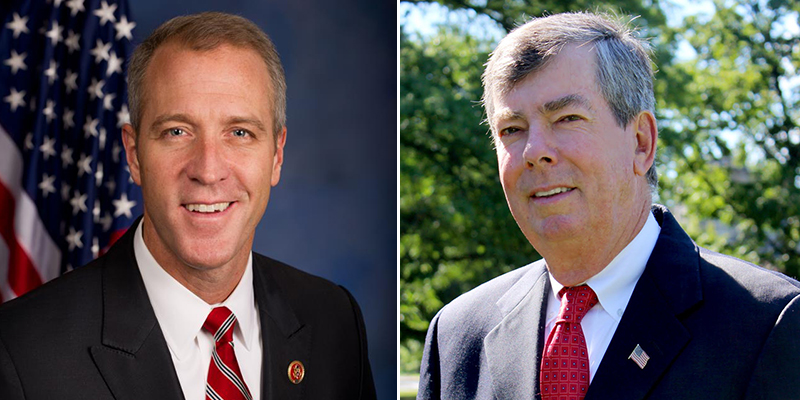
Sean Patrick Maloney (incumbent) vs. James O’Donnell
LIKELY DEMOCRAT
Sabato: Likely D
Roll Call: Solid D
Cook: Solid D
Rep. Sean Patrick Maloney represents a swing district that voted for Trump in 2016, so his seat was considered in play by some. However, Maloney has easily won re-election several times and prides himself on an ability to reach across the aisle, which has won him favor even among his more conservative constituents. His decision to run for state attorney general after Eric Schneiderman resigned raised questions about his congressional bid, which he never suspended. Despite legal challenges, Maloney was allowed to run for both offices at once. Maloney ultimately lost the attorney general primary and has returned to actively campaigning against Republican James O’Donnell. Maloney is expected to win re-election.
In the beginning of October, Maloney raised $102,000 to end the period with $383,000 on hand. O’Donnell raised only $24,000 and has $151,000 in his campaign coffers ahead of the election.
NEXT STORY: Eric Adams flies his conservative flag



